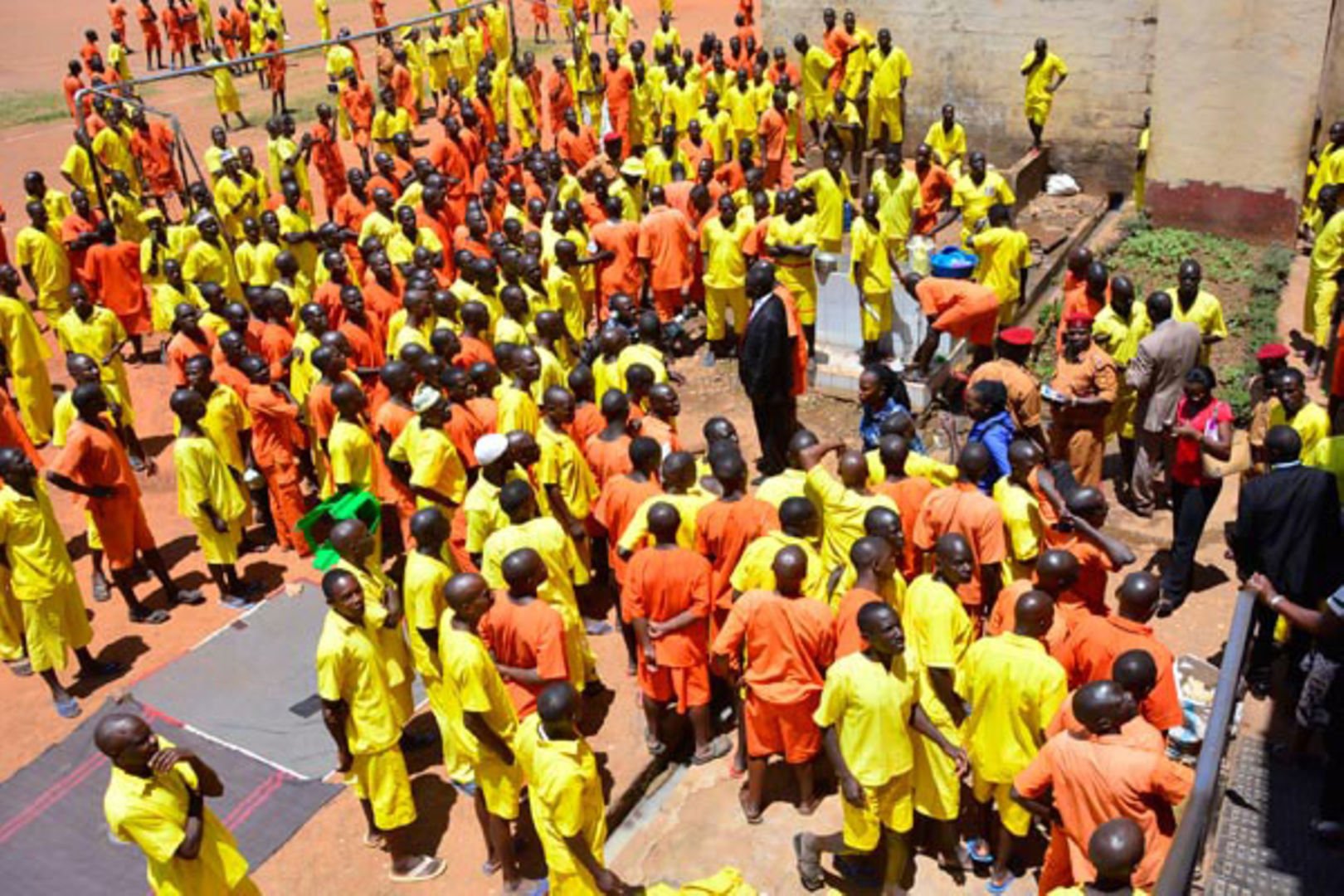Prime
Wakiso prison transports inmates on motorcycles

Some of the inmates in prison. FILE PHOTO
What you need to know:
- Mr Baine also said they are struggling with understaffing in prison facilities across the country.
- He said they have 77,000 inmates with only 14,000 staff.
- This means each prison warder is in charge of seven inmates.
Kasanje prison in Wakiso District uses motorcycles and Sacco vehicles to transport inmates due to a lack of funds to buy prison buses, this publication has learned.
Uganda Prisons Service (UPS) spokesperson, Frank Mayanja Baine said their budget is relatively small and cannot allow them to buy vehicles for every facility across the country.
“When we get money we shall buy vehicles because we operate on a national budget. Our economy has not allowed us to buy enough vehicles. However, security goes beyond transporting them in vehicles that is why we apply what we call dynamic security and that is why we have more escorts,” he said.
Mr Baine also said they are struggling with understaffing in the prison facilities across the country. He said they have 77,000 inmates with only 14,000 staff. This means each prison warder is in charge of seven inmates.
“The number of inmates is overwhelming and we are less by the recommended world ratio which is one staff to three inmates,” Mr Baine said.
The budget the prison service has cannot facilitate recruitment of more staff as they have no money to pay their wages, Mr Baine revealed.
“We operate within the available means as long as we deliver, that is what matters,” he said.
The situation at Kasanje prison was revealed on Saturday at Makerere University during the launch of the 2023 human rights situation report for Wakiso District.
According to the report, Wakiso has five prisons, including Kitalya Min-Max, Sentema, Kitalya Farms, Kasanje, and Kitala prisons.
Last year, these centers had 4,380 prisoners including convicts, remands, and debtors.
The report further reads that out of the 4,380 inmates, 13 females and 2,121 males are convicts, 30 females, and 2,211 males are on remand while five are debtors.
With all these huge numbers, the stations employ 526 uniformed and 21 non-uniformed staff.
“The number of employees is not enough compared to the number of inmates,” the report reads in part.
The district report further indicates that the congestion in the prisons is due to the few state attorneys and magistrates to handle the increasing number of criminal cases.
Even the District Prisons Commander (DPC) lacks means of transport to inspect the different prison stations in place.
The human rights report launch was organized under the theme: “Right to Food, Health, and other social services.”
The event was graced by Mr Kamadi Byonabye, the director of research, Education, and documentation who represented the Chairperson of the Uganda Human Rights Commission (UHRC), Ms Mariam Fauzat Wangadya.
Mr Byonabye called for a collective effort to advocate for human rights saying, “UHRC alone cannot advocate for human rights.”
He asked every member of the public to be an ambassador of human rights.
Mr Matia Lwanga Bwanika, Wakiso District Chairperson asked the government to always prioritize Wakiso in health because of the population pressure.
“Wakiso has areas where health care services are still a nightmare. In Bussi Island, people are still delivering on boats and access to HIV/AIDS services is still a challenge,” Mr Bwanika said.
According to the 2022 report by the Uganda Aids Commission, the prevalence of HIV/AIDS in Wakiso District is still high currently at 7.9 percent way above the national prevalence of 5.2 percent.
Mr Elly Kasirye, chairperson of the district human rights committee, said the report rotated around health because of the situation of health facilities in Wakiso.
He said most of the health centers are not inclusive to people living with disabilities, there is no medicine and enough equipment and staff are ever absent.
Other pressing issues named in the report include increasing cases of land grabbing and forceful evictions, GBV and gender inequality among others.




